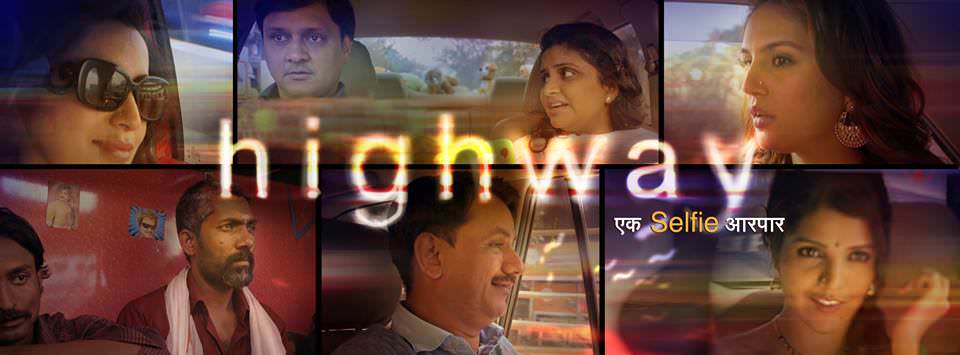With Highway, Umesh Vinayak Kulkarni takes a new turn in his growth as a filmmaker. While his earlier best work has been celebrated for its discrete enabling of ‘moments’ to flower within themselves and to build the ‘whole’ of the film in terms of evocations, here Umesh brings all the possibilities of the ‘whole’ into collision.
There is a collision of fragments here, spaces, faces, moralities, deceivers without hope and the forlorn without an insight into their own heart.
Often, the montage of these many encounters come together to make a homogenized whole idea of life. But just as often, there is an intense and uneasy juxtaposition between this idea of there being a cogent, moral force that glues all the fragments into a predetermined sentiment and the idea of life as a flow of unknown, unpredictable encounters.
It is the collision of these ideas of life that makes the film noteworthy for me. But, as we’ve often seen & felt, montage can disarrange as well as conciliate. And every filmmaker, in one way or another, makes a pact with the devil or affirms a life-time of conflict. Here, in Highway, the film, its characters, as well as the filmmaker, are valiantly struggling between the alternatives.
This struggle brings another layer of excitement to the film. It helps unveil cinema’s ability to not simply produce images, but to impel consciousness, struggle as it might, into unmapped territories.
In fact, the struggle cannot help but shove aside that which is regulatory and conciliatory and, instead, propels to the fore the possibility of colliding ideas to tear apart established reality and provokes us to rethink again, creatively, our social, political as well as aesthetic stance. Thus, it modulates the ‘whole’ towards an unceasing flow of other possibilities. The volatile rhythms of movement, the contraction & expansion of speeds, the accord-discord of relationship & figures & colors & sounds provoke us towards that very fundamental query — which the struggle has sought to hide – to query the very idea of the representation of life.
Montage calls attention to the ways a film constructs its internal logic, how situations, characters, affects are composed, and, consequently, how ideas take form. Clearly, the kind of montage chosen determines the kind of reality. Willy-nilly, montage always queries the conscience of the imagination.
This is the excitement about watching a film like Highway — it precipitates fundamental enquiries not only about what we see, but how we see. Do we see at all or do we simply foresee, extrapolate, conjecture, suspect, conclude? Distressing questions.
These are the questions that the characters in Highway are really travelling towards. This is their journey and during the journey they must slowly, painfully, become worthy of asking themselves these questions. How each one arrives to these questions, how each one answers them or not is the journey of Highway.
This is also the journey of the many, varied actors of the film. The performance of each one of them is to be appreciated by how they nuance the time-flow of the film (or hammily plod through it) to reach the questions that will help them see again.
And, thus, help us (or not) to see them. To really see them.
I really saw Girish Kulkarni. Huma Qureshi. Mukta Barve. The startlingly luminous new actor, Shubham. I really saw Tisca Chopra.
See the film. It is to be seen. Seen.
Marathi, Drama, Color


